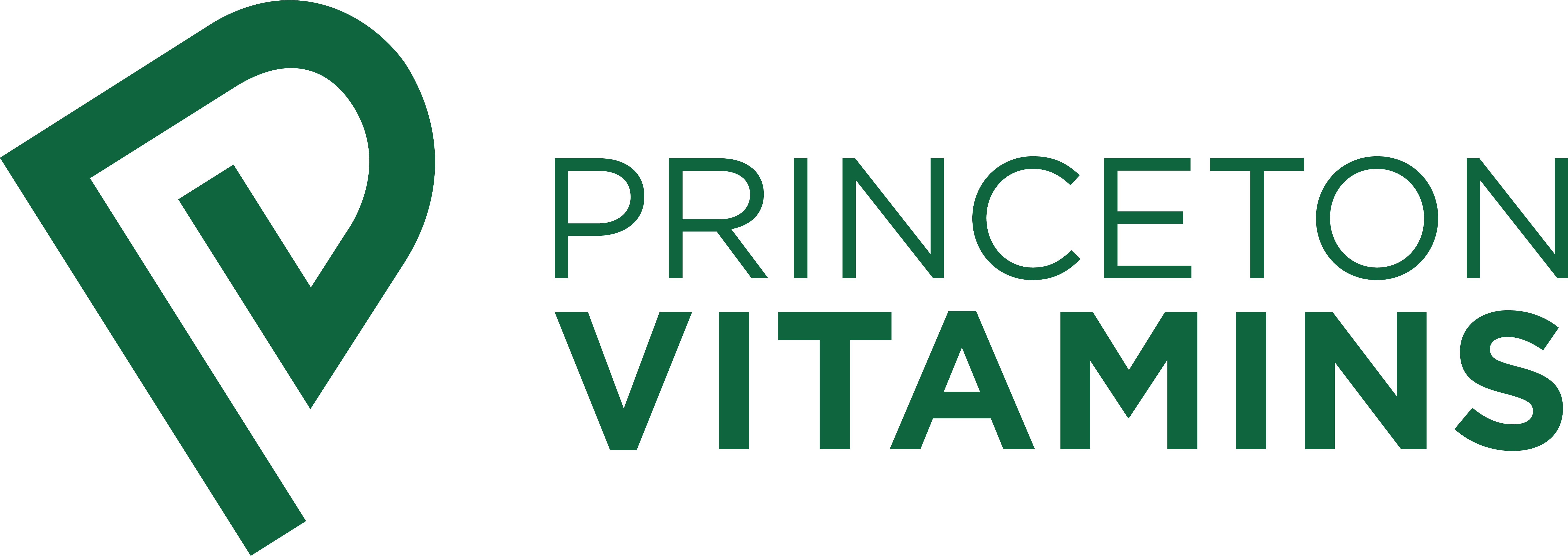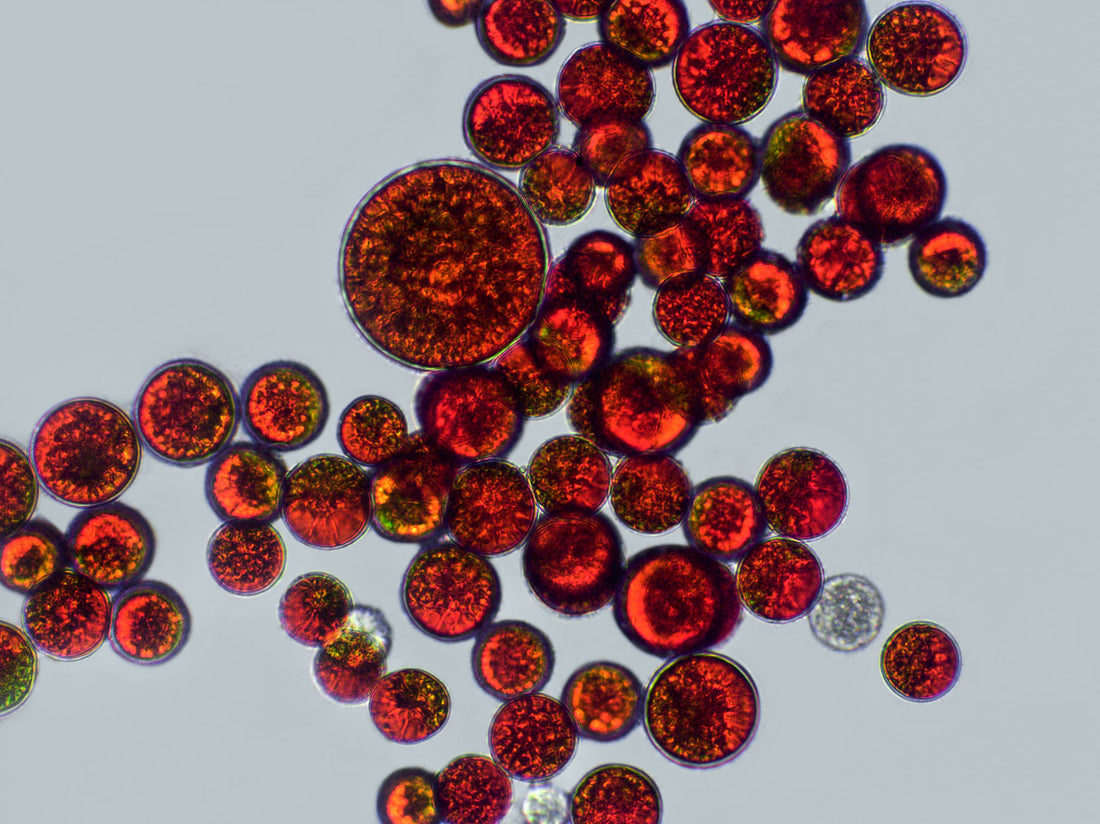Understanding Astaxanthin: Why it’s an important antioxidant to add to your supplement regimen
You may have heard of the benefits of antioxidants from carotenoids like lutein, zeaxanthin and lycopene—that are known to help support the eyes, heart, brain and enhance immune function. You may not be aware of a lesser known carotenoid called astaxanthin, but you should be. It is among the most clinically studied nutrients around, with a significant body of research that supports clinical validation of at least 10 health benefits, including brain health, cardiovascular support, eye health, enhanced energy, joint support, immune system modulation, skin health as well as overall healthy aging.*
So what makes astaxanthin different? Astaxanthin is created in nature by microalgae as a survival mechanism that protects it against extreme temperatures and allows it to survive for many years without food or water.[1] Astaxanthin is most common in a specific algae called Haematococcus pluvialis (H. pluvialis), which generates the red astaxanthin under environmental stress.[2] H. pluvialis is a common food for aquatic creatures like salmon, crab, lobster, shrimp and some other fish, and eating it gives them their reddish color. Salmon have the highest concentration of astaxanthin, and it is believed that it helps them have the energy to swim upstream to the spawning grounds –an amazing feat of energy and endurance.[3]
Astaxanthin is emerging as one of the most high quality antioxidants you can take because it can distribute itself throughout the body to reach muscles, skin, heart, liver and other organs as well as crossing the blood-brain barrier and blood-retinal barrier to enter the brain and eyes. Here is just some of what we know. Astaxanthin:
- protects the entire cell while other antioxidants generally protect one part or the other.
- handles multiple free radicals in our bodies all at once, while most other antioxidants only handle one-at-a-time.
- can never become a Pro-Oxidant (which can cause additional oxidation to our cells).
- crosses the blood-brain barrier to bring its antioxidant activity and anti-inflammatory properties to help protect the brain and eyes.
- helps prevent photo-aging and improves the skin’s appearance and quality from the inside out.
- bonds with muscle tissue to control oxidation and inflammation, especially in athletes and active people.
Source: Natural Astaxanthin: The Supplement You can Feel. By Bob Capelli. Copyright 2018.
It should also be noted that astaxanthin has been well-studied for its immune support, an issue that is top of mind for many people these days. In addition to an extensive body of animal, in vitro and human research, a groundbreaking 2010 study has shown astaxanthin to be a strong immune system modulator in healthy humans.[4] The study is considered a landmark because the results show five distinct benefits related to immune function from astaxanthin intake, including increasing the total number of anti-body producing B-cells, amplifying natural killer cytotoxic activity, stimulating white blood cell counts, increasing delayed-type hypersensitivity response, decreasing DNA damage and reducing C-reactive protein, a marker of systemic inflammation in the blood.[5] In other words, this means that astaxanthin works through multiple pathways as an anti-inflammatory and antioxidant to support cardiovascular health and immune response.[6]*
In addition to its extensive research, astaxanthin is likely one of the few nutrients that you will actually feel after taking it. Author Bob Capelli noted in his book “Natural Astaxanthin: The Supplement You Can Feel” that clinical research has shown that 80% of people who take natural astaxanthin will feel it working within as little as a month. This may take shape in the form of better workouts or quicker recovery, an improved immunity, more energy, less eye fatigue and dryness and less joint and muscle pain, to name a few things.*
To experience these benefits, however, it is necessary to take a natural astaxanthin supplement. One reason is that it is difficult to get enough astaxanthin through diet alone. To get the ideal dosage, now generally thought to be 12 mg daily, you’d have to eat about 12 ounces of wild-caught sockeye salmon every day.[7]
It is also important to choose a formula made with “natural” astaxanthin, as opposed to other forms, such as synthetic astaxanthin made from petrochemicals, astaxanthin derived from a genetically mutated yeast known as Phaffia, or the astaxanthin extracted from a marine bacterium called Paracoccus. These forms are not the same as naturally derived astaxanthin and have not been extensively studied for safety and efficacy. Synthetic astaxanthin, for example, is unesterified, which means it is not absorbed by the body in the same way, while natural astaxanthin is more than 95 percent esterified, which means that natural fatty acids are attached to one or both ends of the molecule.
It is always best to choose an astaxanthin that is verified as natural by the Natural Algae Astaxanthin Association (NAXA), an organization dedicated to ensuring that consumers get safe, effective and well-studied astaxanthin. Princeton Vitamins’ Natural Astaxanthin is NAXA verified and contains the clinically proven astaxanthin ingredient Astazine.® The formula is 100% natural, made with a solvent-free extract of H. pluvialis.
With more than 600 human clinical trials and pre-clinical studies, astaxanthin is an important antioxidant and a safe and natural anti-inflammatory.* It plays a key role in overall cellular health as well as supporting healthy aging of vital body systems.* Whether you are looking to support overall healthy aging or enhance your daily performance and energy, astaxanthin belongs in your daily supplement program.
Be well,
Mohamed Rafi, Ph.D., founder of Princeton Vitamins
*These statements have not been evaluated by the Food and Drug Administration. This product is not intended to diagnose, treat, cure, or prevent any disease.
[1] Capelli B, Bagchi D, Cysewski GR. Synthetic Astaxanthin is Significantly Inferior to Algalbased Astaxanthin as an Antioxidant and May not be Suitable as a Human Nutraceutical Supplement. Nutrafoods. Vol. 12. 2013. ;145-152.
[2] Capelli B. Natural Astaxanthin: The Supplement you can Feel. Copyright 2018.
[3] Ibid.
[4] Park JS, Chew BP et al. Astaxanthin decreased oxidative stress and inflammation and enhanced immune response in humans. Nutrition and Metabolism. 2010. 7;18. Doi: 10.1186/174307075-7-18.
[5] Capelli Bm Shao H. Natural Astaxanthin and the Immune Response. BGG North American Inc. White Paper Copyright 2016.
[6] Ibid. Natural Astaxanthin. The Supplement you can Feel
[7] Ibid.

